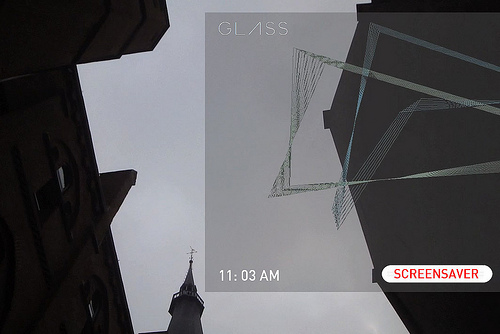No XXX for Google Glass
Google Will Ban Adult Content Using Google Glass

With technological advancements, comes controversy. Google’s newest device, Google Glass, is causing quite a stir. Glass is already changing its terms to eliminate explicit sexual content, being banned from casinos and dealing with invasion of privacy issues. Seattle company MiKandi released the first pornographic app for Google Glass recently, but Google quickly made the decision to ban adult content, according to CNN. MiKandi plans to remain an active member in Google's new project, but intends to alter the product, so it complies with the new terms.
MiKandi Planned to Offer One-On-One Interactions
MiKandi’s goal was to offer consumers more than just a first-person, pornographic-viewing experience. The company wanted to offer one-on-one interactions between adult Google Glass wearers. Without a doubt, Google can expect that hackers will eventually find a way to install unauthorized Glass apps and software.
Google will not Approve Face-Recognition Apps Just Yet
In a recent update, Google states that it doesn't intend to grant the use of face-recognition apps on Glass. The company made the decision because of backlash related to invasion of privacy issues brought forth by critics. These critics claim Google Glass allows users to take pictures with just the wink of an eye, anywhere and at any time. Concerns related to privacy in such places as locker rooms and restrooms come to mind. While Google has made it clear the company will not approve facial recognition apps just yet; however, Google hasn't said that it will never approve facial recognition apps for Glassware. For this reason, both developers and consumers should remain optimistic. Despite the recent controversy, Google demonstrates an open platform in relation to many other products, including Android apps.
Glass May Offer Quicker App Operation
Rather than downloading information directly to the device, many believe Google Glass will store its information in the cloud. Avoiding the download process, allows for quicker operation of apps.
The professional video industry's #1 source for news, trends and product and tech information. Sign up below.
What Google Glass API Release Means for the Consumer
Internetserviceproviders.com states that with the release of Google Glass API, program developers can begin creating apps of all kinds. Program developers can create these apps using a third party, independent and web-based services. Until Google releases Glass to the public, there's a limited version available for the 8,000 people who won a contest conducted by Google last February. This limited version of Glass costs $1,500. Users control the device by tapping and then scrolling on the arm of glasses or with voice commands. Android and iPhone users can connect Glass to the Internet by way of Bluetooth. Wi-Fi is another way that Glass users connect to the Internet.
Glass Apps Revealed
At the recent I/O conference, Google revealed the first set of third-party Glass apps. These apps are referred to as Glassware. According to New York Times, these apps include:
- CNN
- Elle
- Tumblr
- Evernote
The first Glassware game app is “Ice Breaker.” When a player is located nearby, each receives a notification. This allows players to introduce themselves to one another, take pictures and rate conversations. Currently, the only Glassware third-party apps available are New York Times and Path. However, there are built-in functions that allow users to:
- Search the Internet
- Get directions
- Receive phone messages
- Take pictures and video
- Temperature control
Glass May Be Banned While Driving
Google Glass is due for release in late 2013 or early 2014 and some states are already talking about banning the device while driving.
Casinos Throughout the Nation Ban Gamblers From Using Glass
Some of the casinos banning the use of Glass are in:
- Pennsylvania
- Las Vegas
- Ohio
- Connecticut
- New Jersey
These bans are in place because the capabilities of Glass could allow players to cheat while gambling. It's evident that Glass has a lot to offer users; however, Google has a long road ahead of them if they want to make everyone happy.
Image by sndrv pursuant to the terms of his Creative Commons license.
